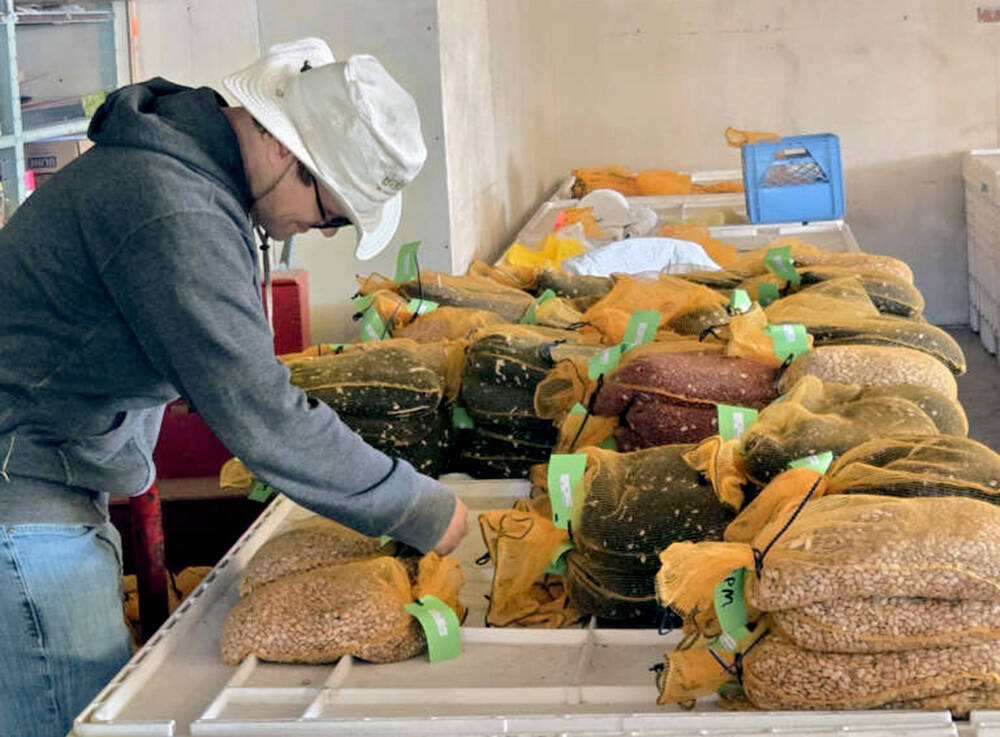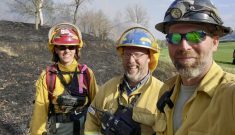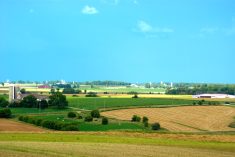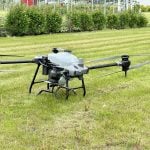Peggy Brekveld is the new president of the Ontario Federation of Agriculture (OFA), elected by the board of directors in a new process approved earlier in the day at the OFA annual meeting.
Brekveld is a dairy farmer near from near Thunder Bay, who has been a vice-president of the organization for six years.
Why it matters: The Ontario Federation of Agriculture is Ontario’s largest agriculture organization.
Drew Spoelstra was newly elected as an OFA vice president, with Mark Reusser was re-elected as the other OFA vice president. The other position on the executive committee was filled by Crispin Colvin.
Keith Currie is the outgoing president.

Months of education paid off for the Ontario Federation of Agriculture (OFA) after members voted in favour to amend a bylaw on how it elects its executive.
Two-thirds of the 270 OFA member delegates attending the virtual annual general meeting Nov. 23, voted in favour of the amendment, which allows the board of directors to elect the executive committee.
“The most important aspect of the passing of bylaw 20-1 is that it will not impact the ability for our members to have a voice and input in the direction of the organization,” stated Keith Currie, OFA President. “Members will continue to have a vote towards the 18 directors who they choose to represent their interests around the board table, ensuring a strong connection remains between our grassroots and the board of directors.”
Read Also

Bean research breeds community giving
University of Guelph dry bean researcher Dr. Mohsen Yoosefzadeh Najafabadi champions sustainability by donating surplus breeding program beans to support food security and community art initiatives.
The bylaw 20-1 fundamentally changes how the OFA elects its president and vice-president and it also allows all 18 provincial directors the ability to vote on resolutions and elections during the AGM. The amendments follow industry standards and represent best practices many agricultural organizations in Ontario already follow.
Plus, the OFA had to change the bylaw in order to continue to be in compliance with the Corporations Act.
Two separate resolutions against ratifying the bylaw amendments were put forth, one by Dundas and the other by Leeds members.
The Dundas resolution suggested the ratification process be delayed a year until the OFA delegates were able to meet in person and there would be no concerns of technological failures during the virtual AGM voting process.
The resolution was defeated 196 to 41.
The Leeds resolution looked for a change so that the president would be elected by the board, but the vice presidents would continue to be elected by the delegates at the annual meeting.
The compromise would still be compliant with the Act while allowing members to maintain the democratic choice to elect the future executive team.
“Since we need to be compliant with the Corporations Act, this resolution does that while respecting the wishes of the membership,” said Eleanor Renaud. “This is a grassroots organization that needs to be listened to and respected. This resolution helps to maintain and be respectful of that relationship.”
The resolution was defeated 190 opposed, 57 in favour.
During the question period before the ratification vote a member asked if the OFA had considered Section 289 of the Corporations Act, which provides an option to elect officers at a special general meeting, as an option.
Cathy Lennon, OFA general manager said the option was discussed with legal counsel and the board through the past year and if the Leeds resolution had passed that would have been the fallback plan.
“We would have held a special meeting this afternoon commenced at 1 p.m.,” she said. “The existing delegates that were voted by their counties, or by their commodity groups, to be present this morning would have attended the special meeting this afternoon, and conducted the elections of the vice president.”













